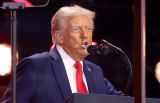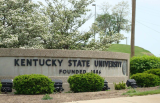NASA is celebrating the 25-year anniversary of the prolific Hubble Telescope by looking ahead to what they hope its successor will accomplish.
With the help of the European Space Agency (ESA), NASA launched the Discovery space shuttle, with the Hubble's satellite on board, on April 24, 1990. 25 years later, Hubble is still showing people on Earth things in the universe they have never seen before.
Speaking with Space.com, Mario Livio, an astrophysicist based at the Space Telescope Science Institute in Baltimore, said NASA is looking ahead five years to the telescope that will succeed Hubble. That telescope will look to further Hubble's mission of seeking alien life away from Earth.
"It has really allowed people to participate in the excitement of discovery," Livio told Space.com. "Hubble images have become part of our culture.
"I regard this as an incredible contribution."
NASA is currently prepping the James Webb Space Telescope, an $8.8 billion project, for launch in 2018.
"A large sample of planets - around 50 - would have to be tested," Livio wrote in a commentary published in the journal Nature. "Calculations show, for example, that if no biosignatures are detected in more than about three dozen Earth analogues, the probability of remotely detectable extrasolar life in our galactic neighborhood is less than about 10 percent."
Five years ago, President Barack Obama detailed a five-year plan for NASA to look and travel farther in space than they have ever before. Today, NASA is managing two rovers on the surface of Mars and a satellite orbiting the Red Planet, in addition to a satellite scheduled to approach Pluto in a matter of month.
"We will not only extend humanity's reach in space - we will strengthen America's leadership here on Earth," Obama said in his address at the time. "For pennies on the dollar, the space program has improved our lives, advanced our society, strengthened our economy, and inspired generations of Americans.
"The question for us now is whether that was the beginning of something or the end of something. I choose to believe it was only the beginning."
© 2025 University Herald, All rights reserved. Do not reproduce without permission.








